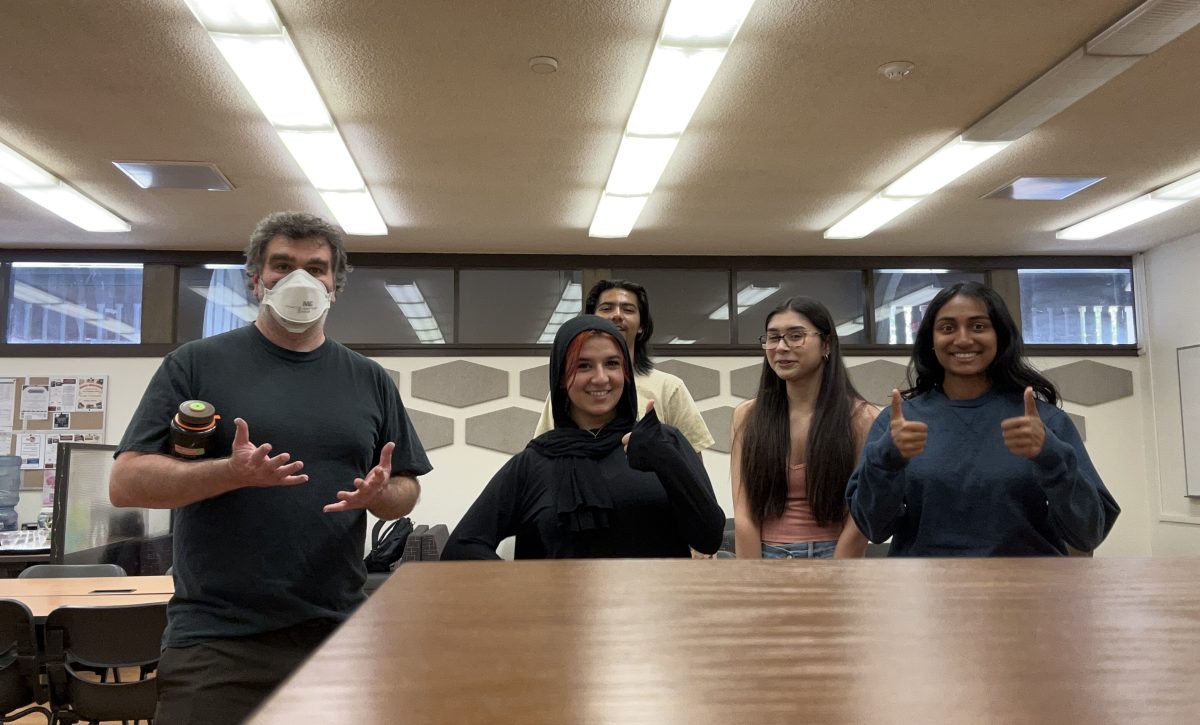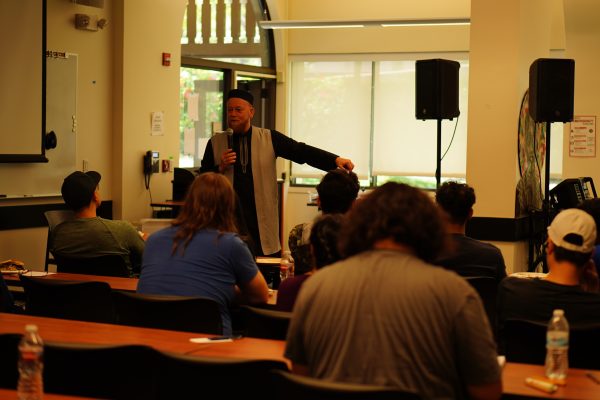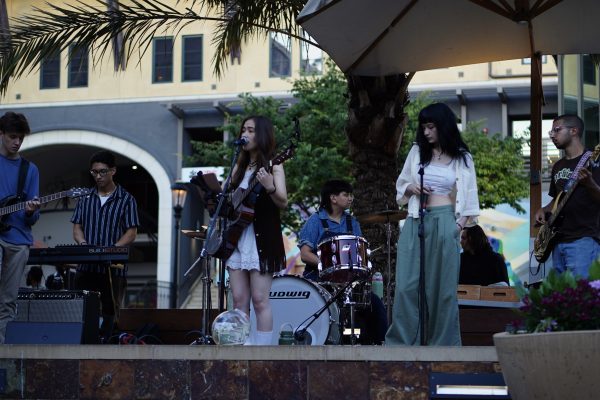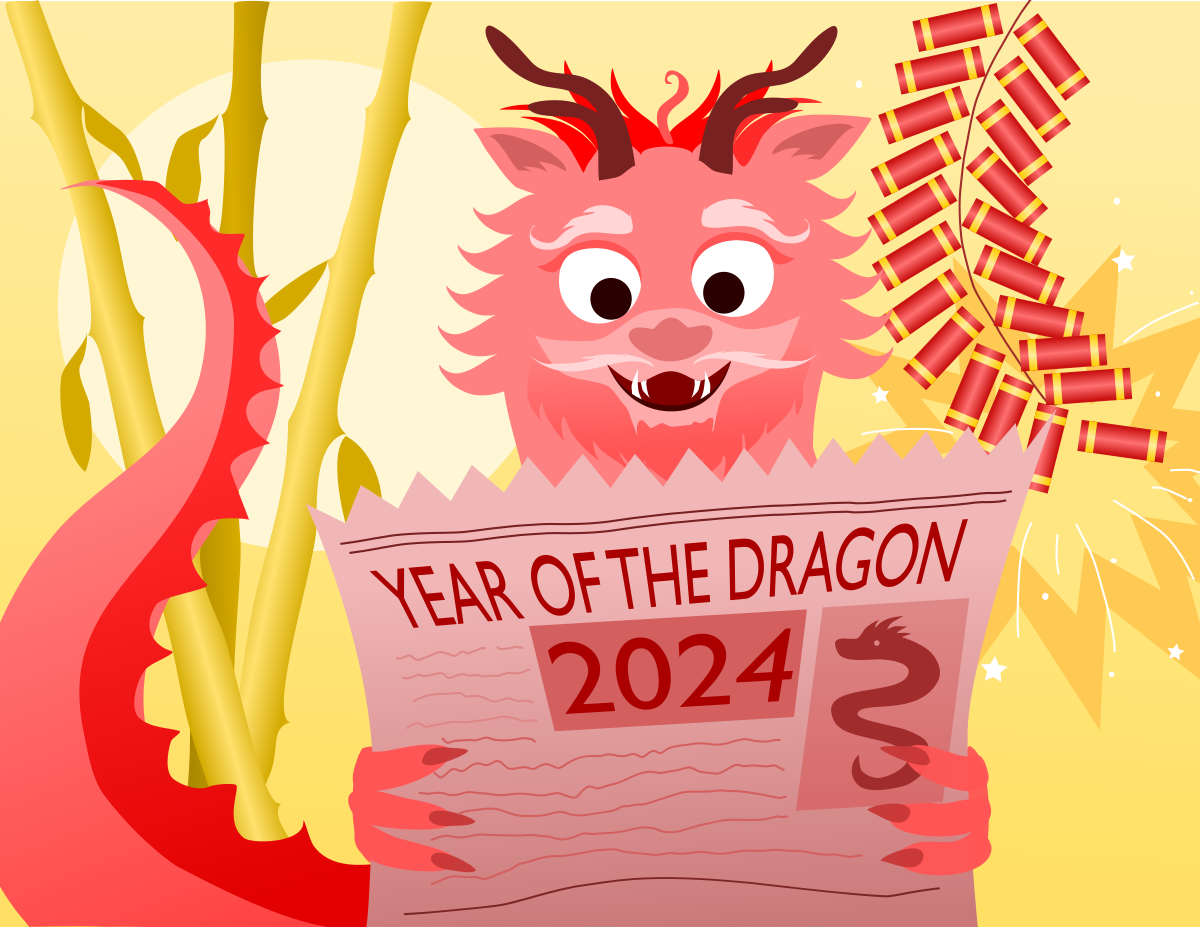This Lunar New Year is coming up on Feb. 10 and despite the Chinese origin of the holiday, people from different countries and cultures around the globe are preparing for the celebration.
According to the Lam Museum of Anthropology, Lunar New Year is a celebration of the arrival of spring and the beginning of a new year based on the lunisolar calendar. This holiday has its origins from China and can be traced back to approximately 3,500 years ago.
Based on China Highlights’ article on the Chinese Calendar 2024, the lunisolar calendar is based on the orbits of the moon and earth. The first day of the lunar month is marked by the moon moving into a line with the earth and the sun; thus, there are around 29 or 30 days in a month, and 12 or 13 months in a lunar year. The lunisolar calendar is approximately 20 to 50 days behind the Gregorian calendar.

This upcoming year is the Year of the Dragon; according to China Highlights, people born in the Year of the Dragon are believed to be confident, intelligent and enthusiastic.
Juo-Tzu Rose Lee, 27, a music major, shares aspects of her Taiwanese customs for the Lunar New Year, which involves a lot of preparing one’s home to welcome the new year.
“Generally, (I) start my day cleaning (…) maybe two or three days before the new year. On New Year’s Eve, we put up spring couplets, get everything we need from the market, and then (prepare) everything,” Lee said. “So in the new year, we have a clean house and a full new year without bad luck.”
Mindy Nguyen, 20, a psychology major, describes her family’s annual preparation work around the household for the Vietnamese celebration of the New Year.

“We have to keep everything clean, prepare food, and then buy bamboo plants to hang red envelopes on them. We prepare a table of food outside for our ancestors and attend the temple to pray,” Nguyen explained.
For those who celebrate, Lunar New Year is the most important holiday in their culture.
Pengfei Zhou, 21, a psychology major, shares the holiday’s significance in Chinese culture, with themes of luck and new beginnings.
“The Chinese New Year is a time of new beginnings; regardless of the hardships experienced in the previous year, everything is brand new when the New Year starts, so it’s a new beginning,” Zhou said.
Many stories and myths are associated with the holiday; one legend details the ferocity of the mythical beast Nian, who would eat livestock, crops and civilians on New Year’s Eve. To avoid the viciousness and destruction of Nian, people would leave food on their doorsteps until a wise older man discovered that Nian was scared of loud noises and the color red.
From then on, to scare Nian away, people started to put up red lanterns and scrolls on the windows and doors of their homes and lit crackling bamboo. This practice developed into the tradition of lighting firecrackers on Lunar New Year.
“In Taiwan, we have a lot of different kinds of firecrackers,” Lee said. “That is time that parents share with (their children); it’s so much fun because we’re not just playing with ourselves, but with our whole family and maybe some of the children in our neighborhoods, on the street. Everybody is doing the same thing and it’s fun to feel like people are connected together.”
Lunar New Year revolves around the Chinese zodiac, which consists of twelve animals. The Chinese zodiac is as follows: Rat, Ox, Tiger, Rabbit, Dragon, Snake, Horse, Goat, Monkey, Rooster, Dog and Pig. However, depending on each culture that recognizes the Chinese zodiac, the animals have minor differences. For example, Vietnam’s zodiac celebrates the Year of the Cat instead of the Year of the Rabbit, and the Year of the Water Buffalo instead of the Year of the Ox.

Chun Ho Li, 23, a computer science major, explained that this upcoming year will not necessarily be the luckiest for those born in the Year of the Dragon. Li described cultural traditions and beliefs in Hong Kong. “Zodiacs also have a fortune system,” Li said. “So every year, there will be a few zodiacs that (do) not have particularly good fortune during the year. Most people don’t know this, but as the year’s zodiac, you may be in particularly bad scenarios.”
As stated in UC Francisco’s story on the celebration, the Lunar New Year tradition eventually spread from China to neighboring countries such as Korea, Vietnam, Thailand, Indonesia and Singapore, which continue to celebrate the festival. There are variations between different countries and cultures regarding the number of celebration days, customs and traditions; however, for everyone, it is a time to reunite and spend time with family.
For Lee, “The (Lunar) New Year will be the most important holiday and festival in our culture because it’s the most important day that the family members working or studying abroad … will come (to the) reunion and share the holidays together. Usually, we have four or five people in our little family, but in the festival during the holiday, there will be maybe 10 or 30 people, and then we’ll visit many neighbors and relatives.”
Zhou describes the joyous occasion with her family as they celebrate with annual traditions of television programs and food.
“I would go to my grandpa’s house, and we would watch the Spring Festival Gala together. While watching the show, we make dumplings together, which will not be eaten now but will be the breakfast on the first day of the new year,” Zhou explains.
A significant part of the Lunar New Year is the gift-giving exchange between friends and family.
“Parents give red envelopes to their children, and they’re just money, and it’s for good luck. For your relatives and other friends, normally they will get fruits, like apples or oranges, which traditionally have good meanings,” Lee said. “Nowadays, some people buy expensive cookies or wine, representing that you are important – that I’m giving you something that’s not normal and expensive.”
The exchange of red envelopes is typical across many cultures celebrating Lunar New Year.
For Nguyen, elders give red envelopes after children wish them a New Year’s blessing.
“It’s basically like wishing them well for the new year. There’s certain messages you want to say; if they’re working or in a business you want to wish them lots of success or money, or for older relatives, you might want to wish them well for their health,” Nguyen said.

Natalie Yuen, 19, biology, who was raised in Hong Kong, describes a fun custom with red envelopes that many children partake in.
“I think one legend is (that) when we get the red pocket, we will not open it immediately because we will put that under our pillow, and will wait until the day after, then we can open it…It signifies that we are sleeping with good luck to begin our year,” Yuen recalled.
Some families put their own unique twists on the tradition of red envelopes, and turn it into a competition between each other.
“Some families choose to put in a modest amount of money into the pockets, and we actually get to keep it, but some families are more competitive,” Li said. “They would put a lot of money into red pockets, but the children don’t get to keep it – the families and parents take and then store it, and they’re going to give it next year. Family members compete over whether they can give a bigger pocket, but you don’t get to keep it.”
Food is always a crucial part of any sort of celebration, and this is no different for Lunar New Year.
Lee celebrates the holiday with a variety of dishes, each with their own meaning. “We prepare fish because, in Chinese, fish has a homophone (with) surplus, so we have fish to wish that the new year will have surplus, will have bounties,” Lee said.
One of Lee’s favorite dishes is Hakka rice cake; “In Chinese, it means you get your every step higher and higher, so you’re doing better and better every year.”
Yuen describes her family’s meal, which involves a large feast with a variety of seafood.
“The whole family just gathers together and then has a good feast. For example, we would have some abalone or some fancy dinner,” Yuen explained.
Lunar New Year is a holiday with a long history and rich traditions and customs that span across many countries and cultures.
Zhou said, “The roots of Chinese New Year are a bit of a mystery to me. … It’s like an instinct. There’s something in my DNA rather than a history lesson. … The traditions go on so it’s etched into our bones.”



























